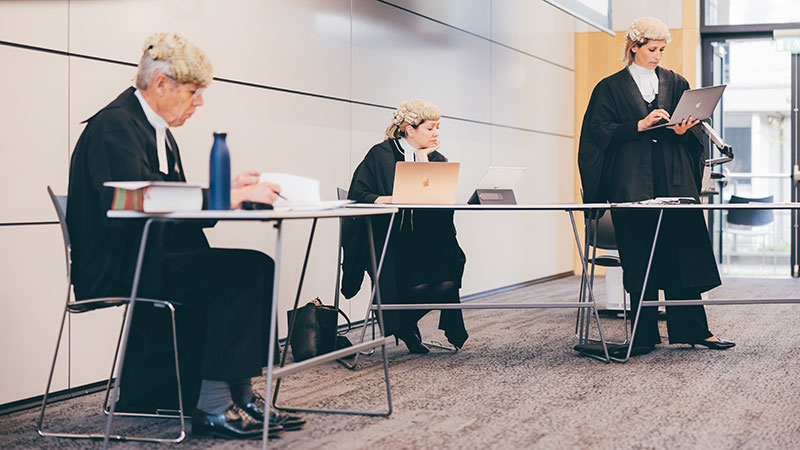Routes to legal qualification
The academic study of the law in England and Wales is an essential element of qualifying as a barrister. The Bar Standards Board requires all prospective barristers to obtain an LLB or GDL covering the 7 foundations of legal knowledge.
Having obtained the LLB or GDL, you’ll need to complete the vocational component of Bar training. You can achieve this by completing the Bar training course.
To enrol on a Bar training course you must be:
- a member of one of the Inns of Court,
- and must pass the Bar Course Aptitude Test (BCAT) if required.
If you successfully complete the vocational component of training, you are Called to the Bar by your Inn. However, you may not practise as a barrister until you have completed the pupillage/work-based learning component.
The work-based component of qualifying as barrister is generally known as ‘pupillage’. It is a 12-month period of work-based, practical training under the supervision of an experienced barrister.
For more details, please see the Bar Standards Board overview of becoming a barrister.

By graduating with an LLB or GDL at Oxford Brookes, you'll cover the required 7 foundations of legal knowledge that are required for the academic component of training in becoming a barrister.
You’ll also have opportunities to develop the essential skill of courtroom advocacy on the LLB programme. As well as through co-curricular mooting activity on the LLB and GDL.
In the third year of your LLB or in your GDL year, you will be applying for Inns of Court Scholarships, the BTC and Pupillage. You will be supported in your applications by experienced members of staff.
To become a solicitor you’ll need to have a degree. You'll then need to pass, in sequence, the following assessments which are set centrally by the Solicitors Regulation Authority (SRA):
- SQE 1 exam (functioning legal knowledge - assessed by multiple choice questions)
- SQE 2 exam (practical legal skills - assessed by a combination of written and oral based tasks).
Before being admitted as a solicitor, in addition to the SQE, you’ll also need to complete 2 years, formal Qualifying Work Experience (QWE). This can be completed in a variety of ways, including a 2 year training contract with a firm of solicitors.
Many firms open up applications for QWE at least 2 years in advance. This means that you may be applying for jobs during your second year on the LLB. And full time GDL students may be applying before starting the GDL.
In addition to passing SQE1 and SQE2 and completing your QWE, you will have to apply to the SRA who will determine whether you meet their character and suitability requirements before you can be admitted as a solicitor.
You’ll graduate from the LLB or GDL with a strong understanding of the important academic foundations assessed on the SQE.
You’ll have opportunities on the LLB programme, and through co-curricular activity on the LLB and GDL, to develop practical legal skills. These skills are assessed on SQE2 and include:
- legal research
- case analysis
- courtroom advocacy
- and client interviewing.
Having obtained the LLB or GDL, you can then start your SQE preparation courses.
To become a legal professional (chartered legal executive) you need to complete your qualification with CILEX, the Chartered Institute of Legal Executives.
As an Oxford Brookes law graduate, you can join the CILEX CPQ programme at the advanced stage and start to specialise in an area of law such as:
- Dispute Resolution
- Criminal Litigation
- Residential Conveyancing
- Commercial Conveyancing
- Employment Law
- Business & Commercial Law
- Family Litigation
- Wills & Probate
- or Immigration Law.

